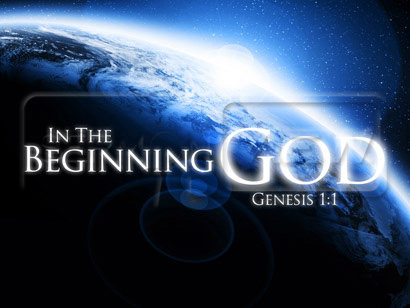Imagine if you will a
giant universe-making machine. This monolithic generator comes equipped with
thousands of dials, each one corresponding to different settings. There is a
dial for the speed of light, one for the force of gravity, one for the nuclear
forces which hold together the sub-atomic particles, there is also a dial for
the number of stars in that universe and likewise a setting for the number of
spiral galaxies. As you adjust these dials, they change conditions and thus
produce a uniquely different universe. Given enough chances—let say trillions
upon trillions—you will eventually produce the favorable conditions of the
universe we currently inhabit. It’s like playing the cosmic lottery an infinite
number of times and finally winning big!
There are many serious
astronomers and cosmologists who actually propose the above example is more
science fact than science fiction. You may have heard of it—the multiverse
theory. As the name suggests, the idea is that our universe is just one of an infinite
number of universes. In a multiverse, any and every set of conditions will
occur, including our own.
Take for example the
multiverse musings of Steven Hawking in his most recent book The Grand Design:
Our universe and its laws appear to have a design that is
both tailor-made to support us. That is not easily explained and raises the
natural question of why it is that way . . . The discovery relatively recently
of the extreme fine-tuning of so many of the laws of nature could lead at least
some of us back to the old idea that this grand design is the work of some
Grand Designer. That is not the answer of modern science. Our universe seems to
be one of many, each with different laws. The multiverse concept can explain
the fine-tuning of physical law without the need for a benevolent Creator who
made the universe for our benefit.”[1]

As you can see, atheists
like Hawking are not hiding their worldview. The multiverse theory is nothing
more than extreme mental gymnastics to stretch the limits of credible science in
an all-out attempt to disallow a Divine foot in the door. Rather than admitting
the infinite God of Genesis 1:1, they believe in an infinite number of universes.
They hope for a multiverse more than a Maker. In other words, the multiverse theory
is a skeptic’s escape hatch from God.
So next time you are
witnessing to the village atheist or the casual skeptic at the office watercooler
and the multiverse objection comes up, how do we offer an apologetic in favor
of biblical creationism? Allow me to help you stock up your quiver so you won’t
be defenseless.
First, there is not one
single shred of evidence that there are more universes than our own. Dinesh D’Souza
writes, “Most scientists seem to hold that we will never have empirical
evidence for other universes. That is because if there are universes other than
our own, they are likely to have laws that are different than the laws that
govern our universe. Consequently, those universes would be inaccessible to us;
we would have no way of finding out about them. A multiverse enthusiast must
hold that they exist largely on the basis of faith.”[2]
The question that naturally arises then is, “Do you have enough faith to be an
atheist?”
Second, even if other
universes could exist then who built the machine that made them? And wouldn’t
those other universes need fine-tuning to get started just like ours? Really,
the multiverse theory, just pushes the issue of God’s existence back one step. Positing
multiple universes doesn’t eliminate the need for a Designer—it multiplies the
need for a Designer!

Third, the multiverse
theory seems to open up a Pandora’s Box of problems. The theory is so broad
that any event can be explained away
by it. For example, “Why did the planes crash into the World Trade Center and
the Pentagon on 9/11?” We need not blame the Muslim terrorists for their actions,
because we just happen to be in the universe where that happens. Somewhere out
there is a universe where 9/11 doesn’t happen and one where it’s an accident. Given
an infinite number of universes, no event would be improbable, let alone impossible.
As Noman Geisler says, “A multiverse doesn’t multiply chances, it multiplies
absurdities.”[3]
And Oxford mathematician
John Lennox humorously writes, “I am tempted to add that belief in God seems an
infinitely more rational option, if the alternative is to believe that every
other universe that possibly can exist does exist, including one in which
Richard Dawkins is the Archbishop of Canterbury, Christopher Hitchens the Pope,
and Billy Graham has just been voted atheist of the year!”[4]
Ockham’s razor states that
we should not multiply causes beyond necessity. It seems gratuitous to theorize
an infinite number of universes, when one God will do the job. The atheist wants
to abolish one infinite God so badly that they are willing to theorize an
infinite number of unobservable substitutes. This is pure foolishness, just as
the Bible declares in Psalm 14:1, “The fool has said in his heart there is no
God.” -DM
[1]
Stephen Hawking and Leonard Mlodinow, The
Grand Design (New York: Bantam Books, 2010), 162-165.
[2]
Dinesh D’Souza, God Forsaken
(Wheaton, IL: Tyndale, 2012), 174.
[3]
Norman Geisler and Frank Turek, I Don’t
Have Enough Faith to Be an Atheist (Wheaton, IL: Crossway, 2004), 108.
[4] John
C. Lennox, Gunning for God: Why the New
Atheists Are Missing the Target (Oxford, UK: Lion, 2011), 36.
No comments:
Post a Comment